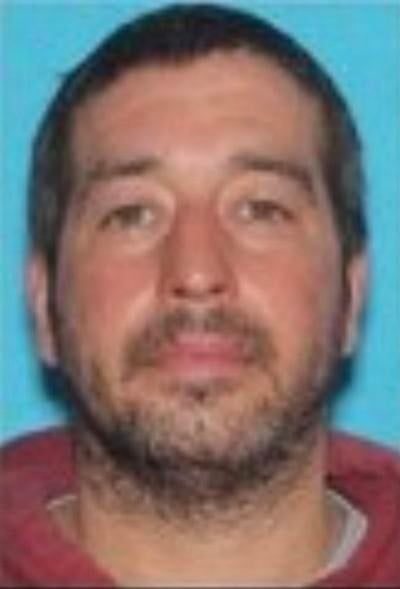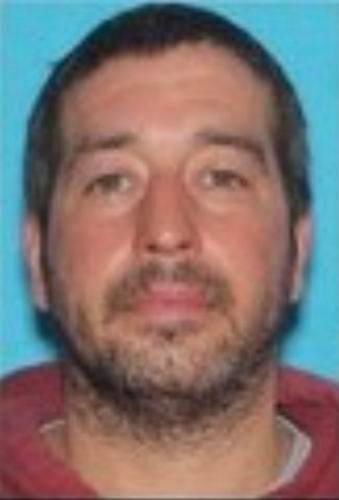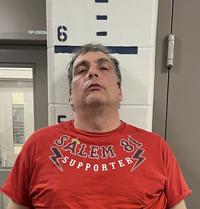Maine's medical examiner has sent part of Lewiston mass shooter Robert Card's brain to a lab in Boston to look for signs of injury — possibly connected to his military service — that could have played a role in his sudden and violent shift in behavior.
Lindsey Chasteen, a spokeswoman for the Office of Chief Medical Examiner, said Monday that brain tissue from Card has been sent to Boston University, which has the nation's largest brain bank focused on studying chronic traumatic encephalopathy, or CTE.
"The reason further testing is being conducted on Mr. Card's brain is that in an event such as this, people are left with more questions than answers," Chasteen said Monday in an email to the Press Herald. "It is our belief that if we can conduct testing (in-house or outsourced) that may shed light on some of those answers, we have a responsibility to do that."
Chasteen had said last week in response to a Freedom of Access Act request that an autopsy report on Card "will not be finalized for months, possibly as many as six months, as there is further testing being conducted on his brain."
A spokesperson for Boston University would not confirm whether the lab is examining Card.
"It is the policy of the CTE center that we cannot and do not discuss any current, past or potential cases without written consent of next of kin," said Gina DiGravio, associate director of media relations for the university.
Card, a 40-year-old Army reservist from Bowdoin, shot and killed 18 people at two locations in Lewiston the night of Oct. 25 and then took his own life two days later. It was the deadliest shooting in Maine's history and its aftermath has spurred intense scrutiny of many areas — law enforcement and military procedures, Maine's yellow flag law (which allows police to temporarily remove guns), and the paucity of mental health resources.
In the months before the shootings, family and friends had grown increasingly concerned about Card's mental state.
In July, he spent two weeks at a psychiatric hospital in New York at the urging of his Army superiors who said he had been hearing voices. For years, Card was a member of the 3rd Battalion, 304th Regiment, a training unit based in Saco, and regularly spent summers training cadets at West Point.
In September, members of that reserve unit contacted local law enforcement to conduct a welfare check on Card, who they feared would carry out an act of violence. But police were never able to connect with him at his house in Bowdoin.
Just days before he opened fire at Just-in-Time Recreation and then Schemengees Bar & Grille, Card was making a delivery at a bakery outlet in New Hampshire when he told employees there, "maybe you will be the ones I snap on."
Generally speaking, it's rare for someone Card's age to exhibit paranoia all of a sudden. Family members told police that Card had been fitted for hearing aids this year and that seemed to correspond with his erratic behavior. Repeatedly, Card accused people of talking about him in public and calling him a pedophile.
In a story published Monday, citing information from unnamed soldiers who served with Card, the New York Times reported that investigators are looking more closely at whether he suffered brain damage as part of his Army service, which included significant time at a hand grenade training range. Army spokespeople previously have only said that Card was a petroleum supply specialist who had never deployed. An Army spokesperson did not respond to an inquiry Monday from the Press Herald asking to confirm Card's grenade training.
The Times' story focuses specifically on whether Card's extended time working in the grenade range could have damaged his brain. One soldier in the unit told the Times that another solider was removed from working in the grenade pit in 2022 because of mental health concerns. That solider is currently in a psychiatric hospital, the Times reported.
Several members of the Saco-based training unit who have been identified in public documents are police officers in Maine and New Hampshire, including Card's immediate supervisor, Kelvin Mote, a corporal with the Ellsworth Police Department. Neither Mote nor any of the others have returned messages from the Press Herald asking about Card.
Army officials have said that they are conducting an internal review of Card's military service, but Maine's congressional delegation has been pushing for more. In a letter Friday to Lt. Gen. Donna W. Martin, the Army's inspector general, Sens. Susan Collins and Angus King, and Reps. Chellie Pingree and Jared Golden called for a comprehensive investigation in addition to an ongoing administrative review. The delegation had just met with three of the victim's families and a survivor in Washington the day before, when they pressed them to push for an independent investigation.
"The victims of the Lewiston shootings would like the Inspector General to immediately open an investigation to ensure objectivity, transparency, and to ensure that critical information is not lost," attorney Travis Brennan, who represents several families, said in a statement Monday. "This investigation is critical to answer questions and to fix the system to prevent another mass shooting from happening again."
Gov. Janet Mills also has convened an independent commission to examine the facts surrounding both the shooting and the events that preceded it. That commission has met twice so far.
Distributed by Tribune Content Agency, LLC.
















